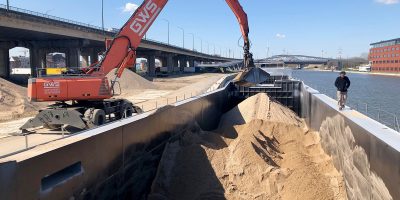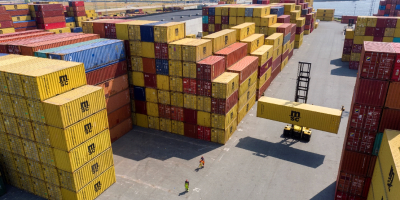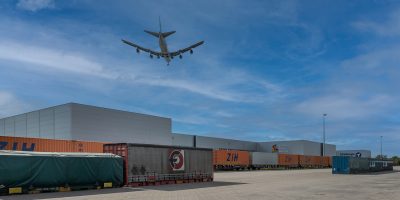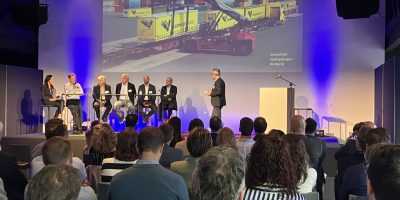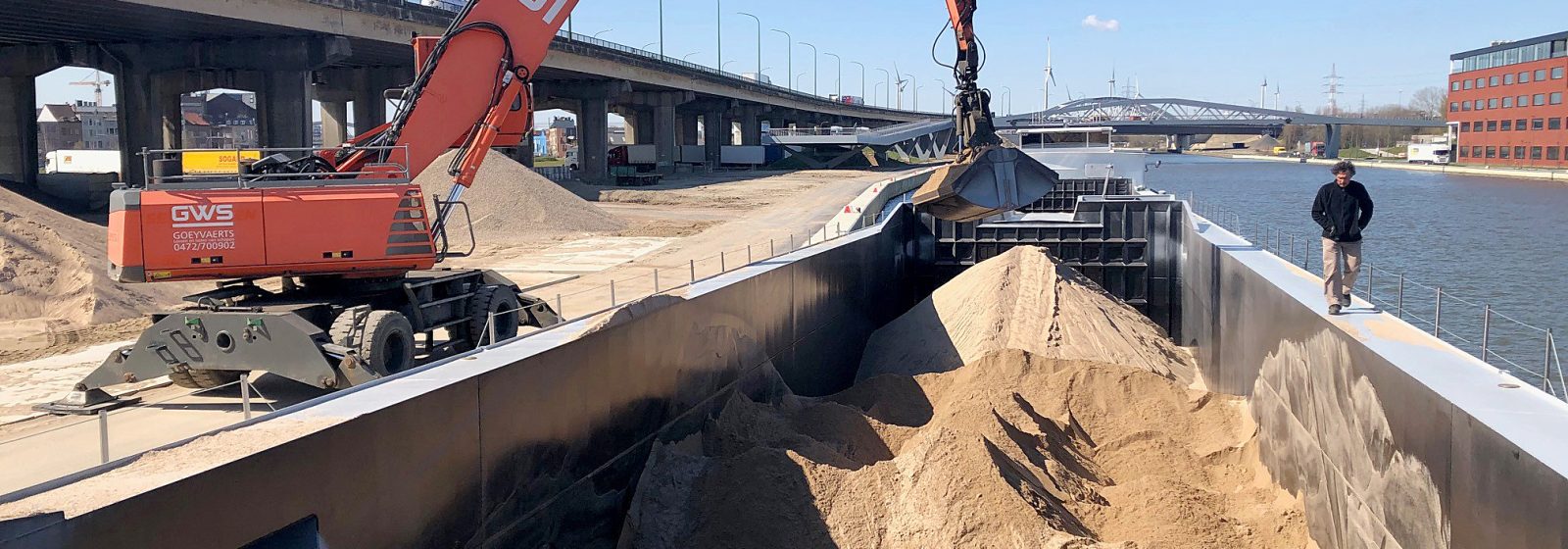
Dranaco trades and produces between 2 and 3 million tonnes of granulates annually, supplying the Belgian, Dutch, Luxembourg and French markets. To boost multimodal transport, the company now wants to open its own terminals to other companies.
Antwerp-based Dranaco specialises in the production, transport by truck and ship and trading of all types of aggregates such as sands, gravel, limestone crushed stone, porphyry crushed stone, broken stones and decorative aggregates. The family-owned company has been active in those basic raw materials for construction since 1919. Not only concrete and asphalt plants and infrastructure works, but also sports fields, gardens and parks are supplied with the necessary aggregates by the company.
Multimodal is a very trendy word today, but actually we have been doing it at Dranaco for more than 100 years
Dranaco trades and produces between 2 and 3 million tonnes of aggregates a year, supplying the Belgian, Dutch, Luxembourg and French markets. Some of these aggregates are further distributed from a site in Antwerp and it does so in a multimodal way. “Multimodal is a very trendy word today, but actually we have been doing that at Dranaco for more than 100 years,” says managing director Anthony De Rop. “We will continue to do so according to the same principle, but we also want to use our sites to be even more of a gateway to the water for second- and third-line companies.”
“Specifically, we also want to open up our quay to other companies,” De Rop said. “In doing so, we are also explicitly looking at other traffics and sectors than ours, so that more companies can find their way via water, and Dranaco wants to further develop its supporting role in this as a logistics & handling company. If we really want to make the switch to more multimodal transport and get large numbers of trucks off the road, it is important that companies are willing to open up their own sites and quays. We want to take a leading role in this.”
Environmentally friendly
That role is right up Dranaco’s alley, as the company is already organising its operations as environmentally friendly as possible today. “We are committed to minimising CO2 emissions. Through the principle of the last mile, we supply 100% of the raw materials via waterways and they are then loaded onto trucks for the last mile.”
“Of course, opening up your own quay also brings new issues and challenges. How can you make a ship ready for other goods? How do you ensure that the certain goods do not come into contact with each other during storage and possible handling?”, De Rop explains. “For us, it is therefore important here to work with partners who have the necessary experience in this and with whom we can develop long-term collaborations in which each party can play its strengths to the full.
Dranaco sees cooperation with other companies as a long-term partnership. The company therefore plans to structurally expand its multimodal activities. “Dranaco was founded in 1919 in Antwerp, where, with the Scheldt and the Albert Canal, two of the most important waterways for inland navigation in the Benelux converge. We need to make maximum use of that asset,” says De Rop. The objective should be to take as much transport off the road as possible and ensure that this transport can be used optimally according to the last-mile principle.
Antwerp family business
“Trucks are necessary and will remain so, but we need to minimise the distance on the runway. Electric bikes are super for delivering parcels in an urban environment, but for large bulk goods this is not an option. By opening up locations on the outskirts of Antwerp city to water-bound businesses, we can respond even more to multimodal transport,” says De Rop. “We are proud as an Antwerp family business, but we don’t want to look only at ourselves.”
“With our crucial location on the Scheldt and the Albert Canal, we want Dranaco to be the gateway to the city for inland navigation. The economic and ecological aspects must go hand in hand towards the future. We must ensure that customers do not fall victim to a ‘too expensive’ sustainability policy in the long run. Today, for instance, we are in the middle of the construction of the Oosterweel, which we at Dranaco see as an opportunity. For this, it is important that Dranaco can think long term, together with all partners and stakeholders involved. Only in this way can we face and solve this challenge together, so that we all benefit,” concludes De Rop.
Contact:
Dranaco nv
Godefriduskaai 28 bus 18
2000 Antwerpen
+32 (0)3 231 08 54
info@dranaco.be
www.dranaco.be

